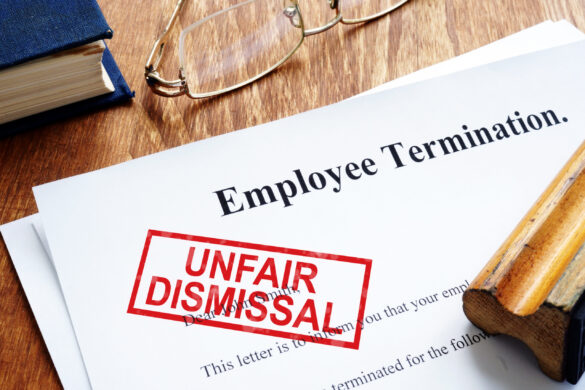A claim for wrongful discharge exists in Maryland, when not based on some statute like an anti-discrimination law, only if a worker can prove that his or her termination violated a clearly stated Maryland public policy and the worker has no other remedy. However, that is not easy to do in Maryland.
A case recently discussing and possibly expanding the law of wrongful discharge in Maryland is Kelly v. Emerge, Inc., No. RDB-19-2090 (10/10/18). In this case, the Plaintiff, Ms. Kelly, worked as a residential counselor who witnessed two residents fighting. She instructed one of the residents to contact the police after she reported the incident in writing to management. The next day, Ms. Kelly was suspended; then, shortly after that, she was fired.
Ms. Kelly claimed she had been wrongfully discharged for reporting criminal activity and for making a mandated report of abuse under Family Law § 14-302 (Reporting abuse, etc.). The employer argued that Ms. Kelly failed to state a claim because she did not directly report the incident to the police. The Court wisely rejected that argument, stating:
- Plaintiff argues that her employment termination violated two clear public policy mandates: … a policy of encouraging reports of suspected abuse or neglect of vulnerable adults, as human service workers must do pursuant to Md. Code Ann., Fam. Law § 14-101. ..
- Emerge [the employer] maintains that her claim fails as a matter of law because she did not personally contact police to report suspected criminal activities and she did not perfectly follow the reporting procedures outlined in Section 14-302. To adequately state a wrongful discharge claim arising from reports of unlawful activity, Plaintiff must allege that she reported the activity to the appropriate authority rather than "merely investigate suspected wrong-doing and discuss that investigation with co-employees or supervisors." Wholey, 803 A.2d at 496. …
- It would likewise be inappropriate to dismiss Plaintiff's wrongful termination claim at this stage merely because Plaintiff did not perfectly execute her legal rights. Plaintiff alleges that she "contacted law enforcement" by "permit[ing] one of the residents to contact police" regarding a physical altercation between two residents. (Compl. ¶¶ 20, 41.) Her decision to facilitate a call to police to report suspected criminal activity, as opposed to dialing 9-1-1 herself, does not negate her wrongful discharge claim. To dismiss her claim on this basis alone would run afoul of Bleich, which counsels against requiring Plaintiffs to flawlessly report suspected unlawful activity.
This is a good case for Maryland workers and protects them from unscrupulous employers.
If you feel you may have been a victim of a wrongful discharge from a place of employment, Lebau & Neuworth may be able to help. Contact our experienced attorney at (410) 296-3030 or lebauneuworth.com/contact-us.












